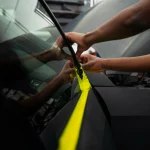Key Takeaways
- The average cost to tune a piano in 2025 ranges between $100 and $200, depending on your location, piano type, and the tuner’s experience.
- If your piano hasn’t been tuned in years, expect to pay an extra $50–$100 for pitch correction.
- Regular maintenance keeps your piano stable, prevents costly repairs, and ensures it sounds its best year-round.
- Certified tuners might charge more upfront, but they’ll help your piano last longer — and sound beautiful doing it.
The average cost to tune a piano in 2025 is $100 to $200 per session, depending on the piano’s condition, type, and how long it’s been since the last tuning. Pianos that haven’t been tuned in several years may need a “pitch raise,” which adds $50–$100. Location and tuner experience also affect pricing, with certified technicians charging on the higher end.
Introduction: The Day My Piano Sounded Like a Cat Walking on It
A few years ago, I sat down to play my old upright piano after a long break. The first few notes sounded fine… until they didn’t. One key was sharp, another flat, and before I knew it, my melody turned into something that sounded like a cat exploring a keyboard for the first time.
If you’ve ever owned a piano, you’ve probably experienced that sinking feeling — realizing it’s time to tune the beast again. And then the next thought: “How much is this going to cost me?”
The truth is, piano tuning isn’t cheap, but it’s also not something you want to skip. Let’s break it down so you know exactly what to expect, what affects the price, and how to make the most of your tuning sessions without breaking the bank.
What Is Piano Tuning, Really?
Think of piano tuning as giving your instrument a full chiropractic adjustment. It’s the process of tightening or loosening the tension on each string (and there are over 200 of them!) to make sure every note plays perfectly in harmony.
Tuning keeps your piano sounding bright, balanced, and ready to make music — not noise.
Here’s a quick breakdown:
- Tuning = adjusting string tension for correct pitch
- Voicing = adjusting the tone quality of each note
- Regulation = fine-tuning the mechanics of the keys and pedals
Even if your piano sits quietly in the corner collecting dust (no judgment), temperature and humidity changes can still pull it out of tune. So yes, it still needs love.
Average Cost to Tune a Piano in 2025
On average, you’ll spend between $100 and $200 for a professional piano tuning in 2025. The price depends on your piano’s condition, how long it’s been since the last tuning, and who’s doing the work.
Here’s a quick look at what different levels of service might cost:
| Tuner Type | Average Cost | What You Get |
|---|---|---|
| Apprentice or student tuner | $60–$100 | Basic tuning, good for lightly used pianos |
| Certified professional tuner | $120–$180 | Full, precise tuning with minor pitch corrections |
| Concert technician | $200+ | Top-tier accuracy for performance-grade pianos |
Grand pianos often cost slightly more to tune than uprights, since they’re larger and more complex.
Factors That Affect Piano Tuning Costs
Frequency of Tuning
If your piano gets tuned regularly (every 6–12 months), great — you’re probably paying less in the long run.
But if it’s been years since its last tune-up, the tuner might need to do extra work, known as a pitch raise.
Think of it like stretching a stiff rubber band — you can’t just snap it back into place instantly. It takes time, patience, and a bit more cash.
Pitch Raise vs. Standard Tuning
When a piano is way out of tune, a standard tuning won’t hold. The tuner first performs a pitch raise to get the tension closer to the correct range before doing the fine-tuning.
This extra service usually costs an additional $50–$100 and adds about 30–60 minutes to the appointment.
Piano Type and Condition
Different pianos = different effort.
| Piano Type | Typical Tuning Cost |
|---|---|
| Upright piano | $100–$150 |
| Baby grand piano | $130–$180 |
| Concert grand piano | $180–$250+ |
Older or poorly maintained pianos might also need minor repairs or part replacements before a proper tuning can be done.
Location and Travel Fees
Where you live plays a big role in the cost.
- Urban areas (like New York or Los Angeles) tend to be pricier — $150–$200 per session.
- Smaller towns or rural areas might fall closer to $90–$120.
Some tuners also charge travel fees, especially if you’re outside their normal service zone.
Experience and Credentials
Just like hiring a mechanic or a barber, you get what you pay for. Certified tuners — often registered with the Piano Technicians Guild (PTG) — charge more, but they also bring years of experience and professional-grade tools.
It’s worth it if you care about sound precision, especially for performance or recording.
How Long Does Piano Tuning Take?
For a standard tuning, expect the session to last 1 to 2 hours.
If your piano hasn’t been serviced in a while or needs a pitch raise, plan for closer to 2–3 hours.
While you could hover and watch, most tuners prefer a little quiet while they work. (Tuning requires sharp ears and deep focus — not background chatter about last night’s Netflix binge.)
How Often Should You Tune Your Piano?
A good rule of thumb:
- Every 6 months for frequently played or performance pianos
- Once a year for home pianos in stable environments
If you live somewhere with big seasonal changes in humidity (looking at you, Midwest), you may need to tune more often.
Pro Tip: A piano’s soundboard swells and contracts with humidity. Using a piano humidity control system can save you from extra tuning costs.
Signs Your Piano Needs Tuning
You don’t need perfect pitch to spot when your piano is begging for attention.
Watch (and listen) for these signs:
- Notes sound flat, sharp, or just “off”
- Chords clash or sound muddy
- Keys have uneven resistance or feel stiff
- The piano sounds dull or lifeless
When your favorite tune starts sounding more like a horror soundtrack, that’s your cue.
Money-Saving Tips for Piano Owners
Tuning doesn’t have to drain your wallet. Here are a few ways to keep costs low:
- Stay on schedule — regular tunings prevent costly pitch corrections.
- Bundle services — many tuners offer discounts for tuning + minor repairs.
- Ask about loyalty programs — regular clients often get better rates.
- Keep it comfy — store your piano in a temperature- and humidity-stable spot.
Think of it as preventive care for your instrument — and your wallet.
DIY Piano Tuning — Is It Worth Trying?
In short: no.
Piano tuning requires specialized tools, training, and a delicate touch.
Each string can hold up to 200 pounds of tension — one wrong twist and you could damage your piano (or your fingers).
So unless you’re a trained technician, it’s best to leave it to the pros.
Finding the Right Piano Tuner
When hiring a tuner, look for these green flags:
- Certified or registered with the Piano Technicians Guild (PTG)
- Positive local reviews or referrals
- Transparent pricing and clear communication
- Experience with your specific piano type
Don’t hesitate to ask questions before booking — a good tuner will be happy to explain their process and credentials.
Read Also: Piano Disposal – Guide to Disposal and Dismantling
Frequently Asked Questions
Yes, moving a piano — even just across the room — can shift its internal tension. It’s best to tune it a few weeks after any move.
Not really. Small pitch shifts add up over time, and skipping maintenance can lead to more expensive fixes later.
Keep your piano away from direct sunlight, vents, and drafts. Stable humidity helps your tuning hold longer.
Nope! Digital pianos are electronic, so they stay perfectly in tune automatically.
Summary
Tuning a piano might feel like a chore, but it’s one of the best ways to keep your instrument healthy and harmonious. Expect to pay around $100–$200 for a standard tuning in 2025 — a small price to pay for years of beautiful sound.
If your piano’s been sitting silent for a while, don’t worry. With a good technician and regular care, you can bring it back to life — one key at a time.


